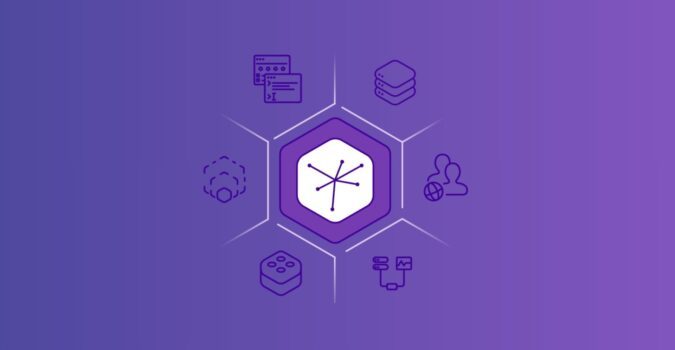Unlocking a New Era of Digital Support Efficiency
In an era where customer expectations continue to rise and operational efficiency becomes a key competitive differentiator, Salesforce AI agents, especially those built with Agentforce, are proving to be a transformative solution. These intelligent digital assistants are helping enterprises deliver faster, more consistent customer support while freeing human agents to focus on complex, high-value tasks.
As businesses scale, the traditional support model breaks down. Long wait times, inconsistent responses, and high churn among service agents aren’t just pain points. They’re profit leaks. Enter Agentforce: a digital labor platform embedded within Salesforce that automates frontline interactions with intelligence and precision.
Salesforce AI agents are not only elevating support workflows—they’re redefining how modern enterprises approach scalable service delivery. Whether you’re a Salesforce Account Executive exploring solutions for enterprise clients or a digital leader optimizing support infrastructure, Salesforce AI agents offer a powerful, native solution aligned with strategic goals.
Why Traditional Customer Support Is Holding You Back
Legacy systems and siloed workflows can’t keep pace with the demands of modern customer service. The landscape has changed: today’s customers expect instant, consistent, and personalized support across channels, and around the clock.
Support teams face:
- Inconsistent service quality across channels
- Repetitive, time-consuming inquiries that drain productivity
- High operational costs and turnover
- Poor data visibility that slows resolution times
These issues aren’t simply operational challenges: they’re strategic blockers. In many cases, high-value team members are often required to respond to routine inquiries. That’s a misuse of talent and a missed opportunity to drive growth.
Additionally, as customer expectations evolve, companies are increasingly expected to offer instant, accurate responses across multiple digital channels. Failure to do so often results in lost revenue and a deterioration of brand loyalty.
For Salesforce customers, the challenge is compounded by fragmented implementations and underutilized automation potential. Businesses need a smarter way to meet demand, without increasing headcount or sacrificing service quality.
The Power of Salesforce AI Agents to Transform Your Support Model
Salesforce AI agents introduce a new paradigm: intelligent, scalable support embedded directly into the CRM. Rather than bolt-on chatbots or disconnected support flows, these agents are fully integrated within the Salesforce ecosystem.
Key benefits include:
- Always-On Availability: Salesforce AI agents deliver 24/7 service without human fatigue, thereby reducing Service Level Agreements (SLAs) and enhancing Customer Satisfaction (CSAT) scores through real-time responses and contextually accurate information.
- Consistency and Accuracy: Automated responses are aligned with brand voice, company policy, and operational data, ensuring every customer interaction is reliable, compliant, and on message at scale.
- Cost Reduction: Digital labor handles high-volume, low-complexity tasks, deflecting tickets before they hit human queues—freeing up agents for more strategic, high-impact support issues that require human nuance.
- Scalability: Add capacity instantly without the overhead of onboarding new hires, so your support team can handle spikes in demand without sacrificing quality, speed, or customer satisfaction.
- Faster Resolution Times: Integrated with Salesforce data for instant context and faster answers—reducing wait times and improving satisfaction across every channel your customers use—email, chat, phone, and more.
These Salesforce AI agents not only manage workflows more efficiently, but they also transform your operations by introducing intelligence at every step of the customer journey. They fundamentally shift how businesses think about service delivery, allowing teams to scale service operations without incurring linear cost increases, thereby enabling growth without compromise.
By deploying an Agentforce service agent, businesses benefit from a digital teammate trained to handle frontline inquiries with precision, freeing up human reps to tackle high-value customer needs.
What Makes Agentforce Different: Under the Hood of Agentforce Service Agent
Agentforce is built natively within Salesforce and designed to meet the expectations of enterprise teams that rely on speed, accuracy, and scale. Operating directly within the CRM, it ensures security, access control, and data fidelity are maintained without compromise. It’s not just an AI agent. It’s a digital employee purpose-built to work within your Salesforce environment.
But what makes Agentforce truly impactful isn’t just where it operates, but how it operates. Agentforce doesn’t simply mimic workflows or respond to prompts; it’s trained like a new team member. Each AI agent is embedded with your brand’s voice, processes, and priorities, allowing it to act with context and intention. That level of specificity is what transforms automation from a novelty into a strategic advantage.
To function intelligently and act as a seamless extension of your team, Agentforce follows a structured and repeatable setup process. This ensures every deployment is not only conversational but also operationally effective within the unique dynamics of your Salesforce environment. From defined topics and action frameworks to integrated workflows, each agent is built to deliver results, right out of the gate and at scale.
How Agentforce Works
- Train Like a New Hire: Agentforce learns your business like a new team member—understanding your workflows, products, tone, and terminology.
- Configure for Precision: Agentforce is configured with clearly defined actions (e.g., “Get Order Status”) and mapped to relevant service topics.
- Connect the Dots: Agentforce integrates with external and internal data sources, ensuring that the right data powers every interaction.
- Know When to Escalate: If an interaction becomes too complex or sensitive, Agentforce triggers a seamless handoff to a human agent, including all relevant contexts.
Core Components
To deliver meaningful automation, Agentforce relies on a structured framework. Each Salesforce AI agent is designed with a foundation of key components that ensure relevance, actionability, and brand alignment from day one. This systemized structure enables teams to scale intelligently while preserving the nuance and quality of human support. Below is the breakdown of the structure:
- Service Topics: Identify what customers are asking about (e.g., returns, orders, onboarding)
- Actions: Define what the agent should do (e.g., fetch data, update records, generate quotes)
- Knowledge Base: Preload contextual knowledge and brand-specific guidelines
- Conversational Flow: Design the user interaction—from greeting to resolution to escalation
Agentforce wasn’t built as a generic chatbot but as an intelligent platform designed to become smarter and more helpful over time. Its architecture supports long-term growth and adapts to evolving business needs.
Real-World Impact for Salesforce AI Agents
Salesforce AI agents deliver measurable impact across industries and functions—anywhere speed, scale, and accuracy are critical. Their deep integration within the Salesforce ecosystem makes them ideal for streamlining operations, reducing costs, and improving customer experience.
1. Customer Support Deflection
Utilize Agentforce to manage FAQs, order tracking, and account management with minimal human intervention. By integrating with your Salesforce data, Agentforce provides up-to-the-minute answers based on customer records.
2. Field and Partner Enablement
Sales reps, partners, or installers can interact with Agentforce to get instant updates, how-to guides, and asset access while in the field. This reduces reliance on internal teams for routine information.
3. Order and Returns Management
Customers can cancel orders, request refunds, or check return statuses—all without waiting on hold or being transferred. Integrated with fulfillment and logistics systems, Salesforce AI agents provide real-time transparency and autonomy for customers to manage orders and returns efficiently.
4. Lead Qualification and Pre-Sales
AI agents can engage new visitors, qualify them based on preset criteria, and route high-priority leads to human representatives in real-time. This improves MQL quality and accelerates deal velocity.
5. Product Setup and Onboarding
Guide users step-by-step through setup processes or product configuration with contextual, intelligent automation. Personalized onboarding journeys increase retention and reduce churn.
These use cases span industries—from healthcare to finance to manufacturing—and the common thread is transformation.
Measuring the Impact: ROI from Agentforce AI Deployments
Agentforce isn’t theory—it’s in production delivering measurable results.
Even in early-stage deployments, Agentforce AI has consistently driven measurable impact across core service metrics. According to Salesforce’s report, organizations leveraging agent-based AI solutions like Agentforce have achieved operational cost reductions of up to 30% through intelligent process automation. Additionally, these organizations have reported a 25% improvement in NetPromoter Scores (NPS), reflecting enhanced customer experiences. Furthermore, enterprises utilizing pre-built workflows in Agentforce have experienced 20% lower Total Cost of Ownership (TCO) compared to custom solutions.
These aren’t isolated wins—they’re indicative of a broader shift. Salesforce AI agents built with Agentforce are reducing costs, improving service quality, boosting ROI, and enabling data-driven decision-making across service operations. while improving speed, accuracy, and brand trust, proving their value as a long-term strategic asset.
Common Pitfalls When Rolling Out AI Agents in Salesforce
Even the best AI tools will fail without thoughtful implementation. That’s the biggest mistake we see—businesses expecting AI to work out of the box, without the right context or preparation. AI is
only as effective as the ecosystem and data it’s trained on. That’s where a Salesforce-native design gives Agentforce a distinct edge, but it’s not a silver bullet.
Deploying Agentforce successfully takes more than a technical setup. It requires strategic alignment, clean, well-structured data, and a clear understanding of the outcomes you’re driving toward.
Too often, teams underestimate what’s required to operationalize AI in a meaningful way. To help you avoid the most common pitfalls, here are the steps we recommend during the rollout:
- Lack of Contextual Training: Pretrained models aren’t enough. Train your Agentforce instance with real customer interactions, brand-specific terminology, and process flows to ensure it delivers accurate and contextually relevant responses.
- Data Fragmentation: Siloed systems, scattered platforms, and incomplete records cause delays and confusion. Ensure your Salesforce data is well-organized, properly integrated, and easily accessible to maximize AI performance.
- No Escalation Strategy: Not every customer issue should be resolved by an AI agent. Design seamless handoff protocols that route complex cases to human agents, including all necessary contexts.
- Misaligned Expectations: AI won’t immediately replace humans—it supplements them. Start small by targeting high-volume, low-complexity use cases that benefit most from automation. Set clear KPIs and scale gradually as confidence and capability grow.
- One-and-Done Mentality: AI isn’t set-it-and-forget-it. Ongoing updates, feedback loops, and performance reviews are critical. Treat your Salesforce AI Agent like a living system that evolves with your business and continues to deliver value as your needs scale. that evolves with your business.
Why Salesforce AI Agents Powered by Agentforce Are a No-Brainer
Executives aren’t just investing in automation—they’re investing in trust. Agentforce delivers that by scaling service in a way that’s fast, compliant, and aligned with how your business already works. But this isn’t just a tech upgrade—it’s a strategic shift.
Salesforce AI agents powered by Agentforce are transforming support teams into proactive, efficient, and always-on service engines. From intelligent ticket deflection to 24/7 conversational availability, these AI agents drive operational excellence and elevate the customer experience. Embedded natively within Salesforce, they ensure data accuracy, workflow alignment, and brand consistency at every touchpoint.
Throughout this guide, we’ve unpacked the inefficiencies of legacy support models, the unique advantages of AI agents built within Salesforce, and the structured implementation process that makes Agentforce effective. We’ve also covered the pitfalls of a poorly executed rollout—and how to avoid them.
The takeaway? AI agents aren’t a future bet, they’re delivering ROI today. If you’re ready to reduce costs, increase satisfaction, and scale support with confidence, let’s talk.



